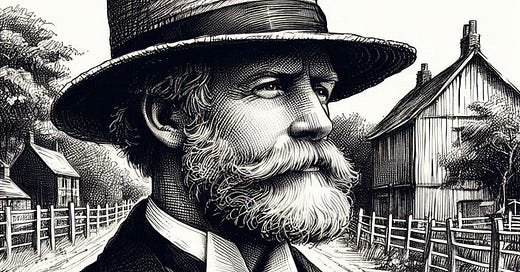If you are new here let me be clear about one thing. I am not a farmer, or a homesteader, or even crunchy. I live in a small town in rural New England, where I work remotely in financial services. All of those things are very normal here and I am learning. But I do not want to portray myself as something I am not. I am someone whose lifestyle consumes m…
Keep reading with a 7-day free trial
Subscribe to The Country Gentleman to keep reading this post and get 7 days of free access to the full post archives.





